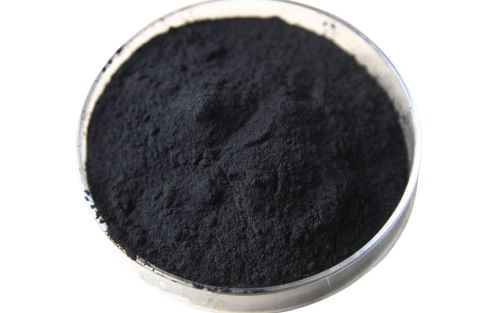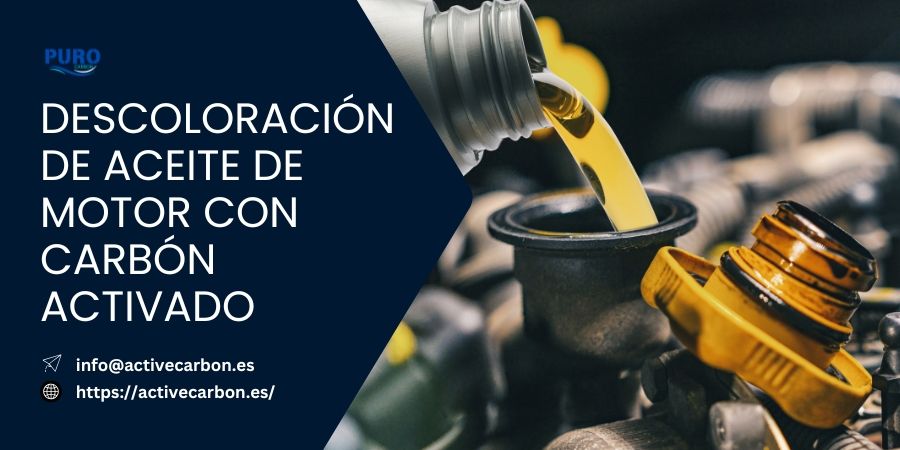Engine oil, as one of the most important engine components, becomes contaminated with impurities, oxides and metal ions during use. These contaminants not only affect the performance of the oil, but can also damage the engine.
Therefore, it is crucial to change engine oil regularly and subject it to purification treatment. Activated carbon, due to its excellent adsorption properties, has become a common and effective material for engine oil decolorization and purification.
This article details the application of activated carbon in the decolorization of motor oil, its principle of operation and its advantages.
The Need to Bleach Engine Oil

During use, motor oil is affected by heat, oxygen and other factors, causing it to darken in color and even generate sediment.
These changes not only affect the appearance of the oil, but can also lead to a decrease in its lubricating performance and even damage the engine. Therefore, it is essential to perform an engine oil discoloration treatment on a regular basis.
The Principle of Activated Carbon in Engine Oil Decolorization
Activated carbon is a highly porous material with a large specific surface area and strong adsorption capacity. When engine oil is treated with activated carbon, the porous structure of carbon can effectively adsorb pigments, impurities, oxides and some harmful metal ions present in the oil. Its working principle is mainly based on two aspects: physical adsorption and chemical adsorption.
- Physical adsorptionThe surface and porous structure of activated carbon provide numerous adsorption sites that can attract harmful substances in the engine oil, such as moisture, impurities and metal ions, by means of Van der Waals forces.
- Chemical adsorptionIn some cases, activated carbon can also, through chemical reactions on its surface, bind to certain substances in the engine oil, further purifying the contaminating components and achieving decolorization and deodorization.
In this way, activated carbon not only removes color and odors from motor oil, but also prolongs its service life.
Request a QuoteThe Role of Activated Carbon in Engine Oil Discoloration

The role of activated carbon in engine oil decolorization is manifested in the following aspects:
- Pigment RemovalActivated carbon can effectively adsorb pigments present in motor oil, such as chlorophyll and carotenoids, improving the appearance of the oil.
- Impurity adsorptionActivated carbon can efficiently adsorb non-fatty components of the oil, such as phospholipids, waxes and metal ions, slowing oil degradation and increasing its purity and stability.
- Odor EliminationActivated carbon treatment significantly reduces odors of volatile organic compounds such as aldehydes and ketones, making the oil smell purer and more pleasant.
- Loss ReductionCompared to traditional methods such as decolorization with alkalis or white earth, the activated carbon adsorption method is gentler, preserving the nutrients in the oil to the maximum and minimizing processing losses.
Activated Carbon for Engine Oil Discoloration

When choosing activated carbon for engine oil discoloration, our company offers wood powder activated carbon. This type of wood powder activated carbon, due to its unique physical and chemical characteristics, shows significant advantages in the field of engine oil decolorization.
Its proportion of large pores is much higher than that of other types of activated carbon, which is especially important for the decolorization of substances such as sugars or fats, as the pigment molecules usually have a high molecular weight, a low diffusion velocity and a slower rate of entry into the interior of the activated carbon.
In addition, conventional activated carbons have a higher proportion of micropores. Pigment molecules often have difficulty entering and being adsorbed in the micropores, whereas wood powder activated carbon is ideal for this feature.
The characteristics of the wood powder activated carbon we offer are as follows:
- High discoloration efficiencyWood powder activated carbon has a high adsorption capacity, which allows rapid removal of pigments from the oil, improving the visual quality of the product.
- Fast filtering speedDue to its developed large pore structure, wood powdered activated carbon provides a fast filtration rate, increasing the decolorization efficiency.
- Low content of impurities and high purityThe production process of wood powder activated carbon ensures low impurity content and high purity, which avoids the introduction of additional contaminants during the decolorization process, guaranteeing the quality and yield of the oil.
Conclusion
Activated carbon, as an efficient and environmentally friendly material, provides a reliable solution for engine oil regeneration and purification. If you are looking for high quality activated carbon for engine oil decolorization, PuroCarbon is your best choice. Contact us at now and our professional team will offer you customized solutions according to your needs.
Frequently Asked Questions
Engine oils can darken during use due to oxidation, contamination and metal ions, which not only affects their appearance, but can also lead to a loss of lubricating performance and damage the engine. Discoloration treatment helps remove these impurities, restoring the oil's performance and extending its service life.
Activated carbon removes color from motor oil by physical adsorption and chemical adsorption. Physical adsorption uses the porous structure of the activated carbon to adsorb pigments and impurities, while chemical adsorption achieves the color removal effect by combining with certain substances in the oil through a chemical reaction on the surface of the activated carbon.
Compared to the traditional methods of alkaline refining or white clay decolorization, the activated carbon decolorization method is gentler and can maximize the retention of nutrients in the oil and reduce processing losses.
Yes, engine oil decolorized with activated carbon can be reused. The decolorization process helps restore the oil's performance so that it can be reused in the engine, thus reducing waste and costs.
When choosing activated carbon, you should consider its adsorption capacity, filtration speed, purity and impurity content. Wood powdered activated carbon is ideal for engine oil decolorization due to its high decolorization capacity and fast filtration speed, as well as its low impurity content and high purity.
